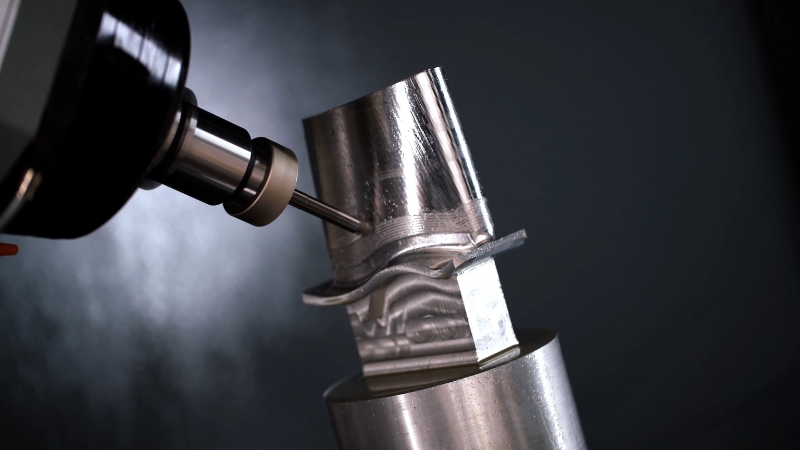If you’re looking for a career where skill beats degrees, demand is skyrocketing, and paychecks are getting bigger, precision machining might be your golden ticket.
This industry is evolving fast, with cutting-edge CNC machines, automation, and aerospace-grade materials shaping the future.
And guess what? The people who program, operate, and maintain these machines are making serious money.
So, what are the best-paying jobs in precision machining?
Which roles offer the highest salaries, the best career growth, and the most exciting work?
I’ll break it all down—complete with salary insights, required skills, and why companies are willing to pay top dollar for the right talent.
9 Jobs in Precision Machining That Are On The Rise
Job Title
Average Salary (2025)
Experience Needed
Key Skills
Growth Potential
CNC Programmer
$80,000 – $110,000
3-5 years
G-code, CAD/CAM software
High
Tool and Die Maker
$70,000 – $95,000
5+ years
Blueprint reading, hand tools, CNC operation
Medium-High
Precision Machinist
$65,000 – $90,000
3+ years
Lathe & milling machines, tolerances
Medium
Quality Control Inspector
$60,000 – $85,000
2-4 years
Metrology, CMM, blueprint reading
High
Manufacturing Engineer
$85,000 – $120,000
5+ years
Lean manufacturing, process optimization
Very High
Aerospace Machining Specialist
$75,000 – $105,000
4-6 years
Titanium & composite machining, CAD/CAM
High
Robotics & Automation Technician
$90,000 – $130,000
5+ years
PLCs, automation integration, robotics programming
Very High
CAD/CAM Engineer
$85,000 – $115,000
4+ years
Computer-aided design (CAD), manufacturing simulation
High
Swiss Machinist
$70,000 – $100,000
3-5 years
Swiss-style CNC machining, micro-tolerance work
High
1. CNC Programmer – The Brain Behind the Machines
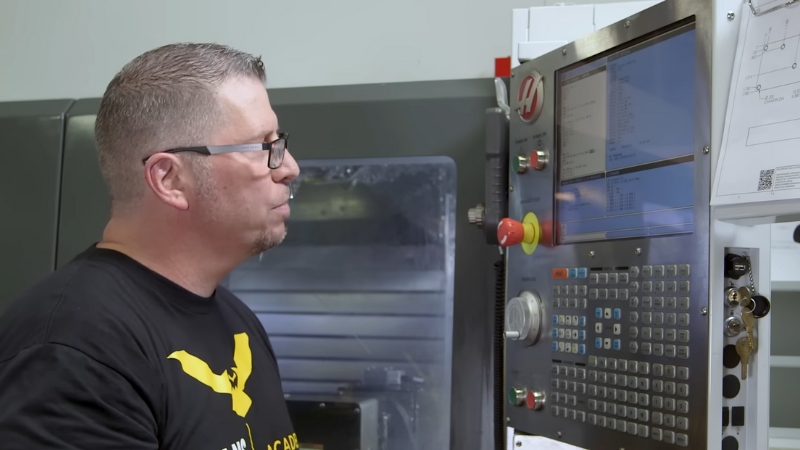
Companies rely on them to convert engineering blueprints into machine code that drives CNC machines with precision.
Mistakes in programming can cost companies thousands in wasted materials and time.
CNC automation is growing, increasing demand for skilled programmers who can optimize processes.
CNC Programmer
Details
Average Salary
$80,000 – $110,000
Experience Required
3-5 years
Key Skills
G-code, CAD/CAM software, blueprint interpretation
Growth Potential
High
Industries Hiring
Aerospace, medical devices, automotive, defense
The Bureau of Labor Statistics (BLS) projects a 10% job growth in CNC-related fields by 2030.
Top-tier CNC programmers with 10+ years of experience earn over $120,000 annually, especially in high-tech sectors like aerospace.
2. Tool and Die Maker – Crafting Precision at Its Finest
They design and build tools, molds, and dies that allow manufacturers to mass-produce parts with exact tolerances.
Their expertise blends old-school craftsmanship with modern CNC machining, making them indispensable.
Fewer young workers are entering the field, creating a skilled labor shortage, driving up wages.
Tool and Die Maker
Details
Average Salary
$70,000 – $95,000
Experience Required
5+ years
Key Skills
Manual machining, CNC operation, mold and die fabrication
Growth Potential
Medium-High
Industries Hiring
Automotive, metal stamping, injection molding
The average age of a tool and die maker in the U.S. is 55 years old, meaning many are retiring, leaving a huge demand for new talent.
Some companies are offering $10,000+ hiring bonuses for experienced tool and die makers.
3. Precision Machinist – The Hands-on Expert
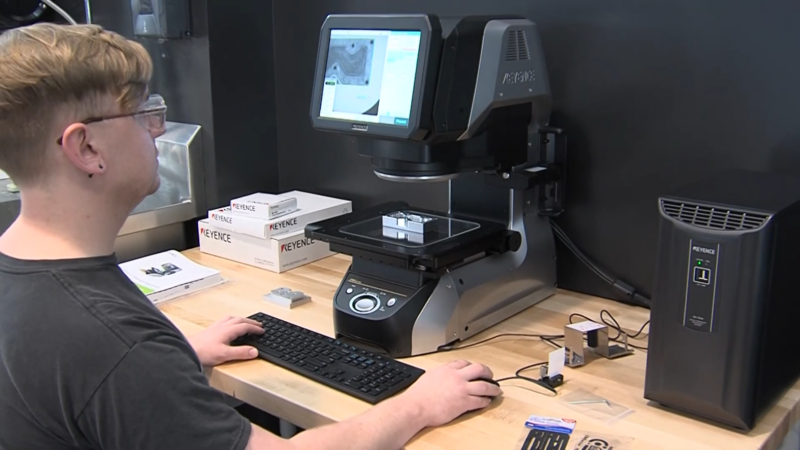
They operate manual and CNC machines to create components that meet strict tolerances.
Many industries rely on custom-machined parts, making experienced machinists critical to production.
| Precision Machinist | Details |
| Average Salary | $65,000 – $90,000 |
| Experience Required | 3+ years |
| Key Skills | CNC operation, blueprint reading, GD&T |
| Growth Potential | Medium |
| Industries Hiring | Aerospace, defense, industrial manufacturing |
Advanced machinists who can work with exotic materials like titanium and Inconel can earn $100,000+.
68% of precision machinists receive on-the-job training, making it one of the best careers for hands-on learners.
4. Quality Control Inspector – The Gatekeeper of Precision
View this post on Instagram
They ensure that finished products meet exact specifications, preventing defects and failures.
As industries like aerospace and medical devices tighten regulations, demand for skilled inspectors is rising.
| Quality Control Inspector | Details |
| Average Salary | $60,000 – $85,000 |
| Experience Required | 2-4 years |
| Key Skills | CMM operation, blueprint reading, metrology |
| Growth Potential | High |
| Industries Hiring | Medical devices, aerospace, precision machining |
Inspectors who specialize in CMM programming earn up to $95,000.
97% of precision machining companies perform in-house quality control to meet strict industry regulations.
5. Aerospace Machining Specialist – Where Precision Meets Innovation
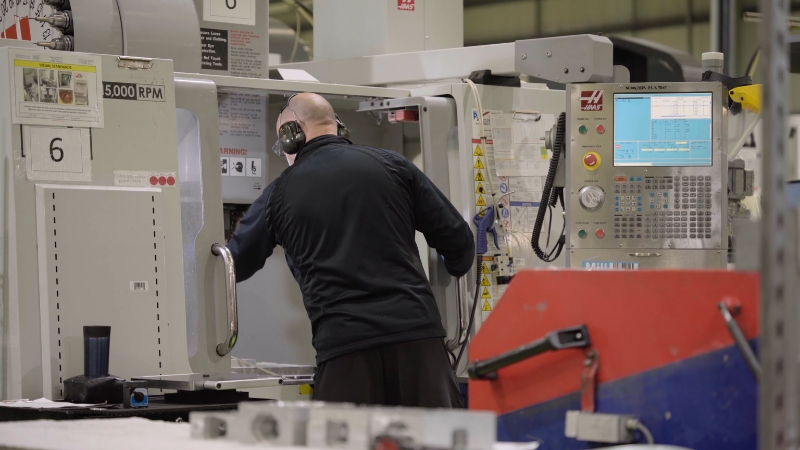
The machine complex, high-precision parts for aircraft, spacecraft, and defense applications.
Materials like titanium and carbon composites require advanced skills, making experienced machinists indispensable.
| Aerospace Machining Specialist | Details |
| Average Salary | $75,000 – $105,000 |
| Experience Required | 4-6 years |
| Key Skills | High-tolerance machining, CAD/CAM |
| Growth Potential | High |
| Industries Hiring | Aerospace, defense, private space companies |
With private space travel expanding, demand is surging.
NASA and SpaceX projects have increased aerospace machining jobs by 25% over the last five years.
6. Robotics & Automation Technician – The Future of Manufacturing
The Future of #Manufacturing: How #DigitalTwins, #3DAI, #Robotics #Automation, and #ImmersiveReality Tech Are Modernizing Industries. https://t.co/Ocf031C7S6 #smartfactory #iiot #industry40 pic.twitter.com/0DSwRC8W5T
— ManufacturingTmrw (@ManufTmrw) June 24, 2024
As factories transition to fully automated production lines, skilled technicians are needed to maintain, troubleshoot, and optimize robotic systems.
Companies are offering six-figure salaries to specialists who can program and integrate robotic arms.
| Robotics & Automation Technician | Details |
| Average Salary | $90,000 – $130,000 |
| Experience Required | 5+ years |
| Key Skills | PLC programming, robotics integration |
| Growth Potential | Very High |
| Industries Hiring | Automotive, medical, high-tech manufacturing |
The global industrial automation market is expected to reach $$307.7 billion by 2030, meaning demand for automation techs will skyrocket.
7. CAD/CAM Engineer – The Blueprint Mastermind
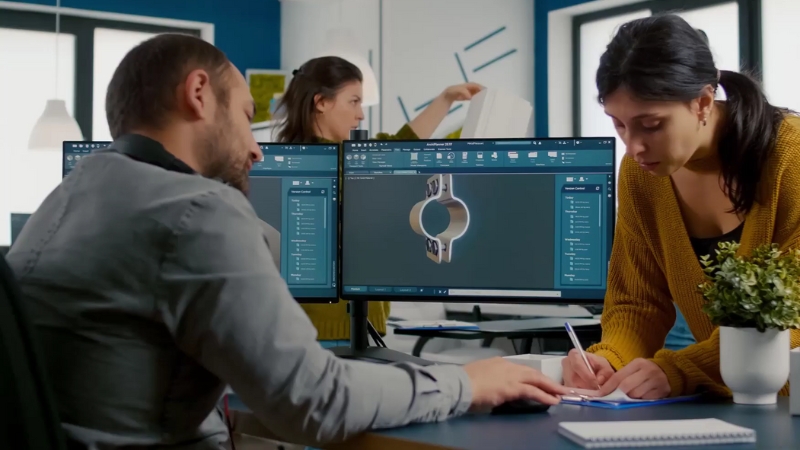
They design and optimize machining programs, ensuring efficiency and precision.
They bridge the gap between engineering and hands-on machining.
| CAD/CAM Engineer | Details |
| Average Salary | $85,000 – $115,000 |
| Experience Required | 4+ years |
| Key Skills | Computer-aided design (CAD), manufacturing simulation |
| Growth Potential | High |
| Industries Hiring | Aerospace, medical devices, automotive |
Advanced CAD/CAM engineers working in aerospace and medical industries can top $120,000 annually.
Over 80% of manufacturing companies rely on CAD/CAM software to improve efficiency and reduce errors.
8. Machinist – The Specialist in Microscopic Precision
@theukmachinist #tiktokcnc #machinist #UnlimitedHPInk #machinisttiktok #tokcnc #machinetool #machinistlife ♬ original sound – theukmachinist
They specialize in machining tiny, ultra-precise components used in medical implants, aerospace, and luxury watchmaking.
Companies pay a premium for machinists who can hold tolerances down to 0.0001 inches.
| Swiss Machinist | Details |
| Average Salary | $70,000 – $100,000 |
| Experience Required | 3-5 years |
| Key Skills | Swiss-style CNC machining, micro-tolerance work |
| Growth Potential | High |
| Industries Hiring | Medical devices, aerospace, watchmaking |
The medical device industry is expected to grow by 6.5% annually, driving demand for skilled Swiss machinists according to Swiss Medtech.
The average salary for experienced Swiss machinists has jumped 15% in the last five years, thanks to increased demand in the medical and aerospace sectors.
Bottom Line
The precision machining industry is a goldmine for those with the right skills. Whether you’re programming CNC machines, crafting intricate aerospace components, or integrating robotic automation, there’s serious money to be made. The demand for skilled machinists is growing, salaries are rising, and companies are willing to invest in top talent.
If you’re looking for a high-paying, hands-on career with long-term stability, this field is worth considering. The best part? Many of these jobs don’t require a four-year degree—just skill, training, and a passion for precision.
